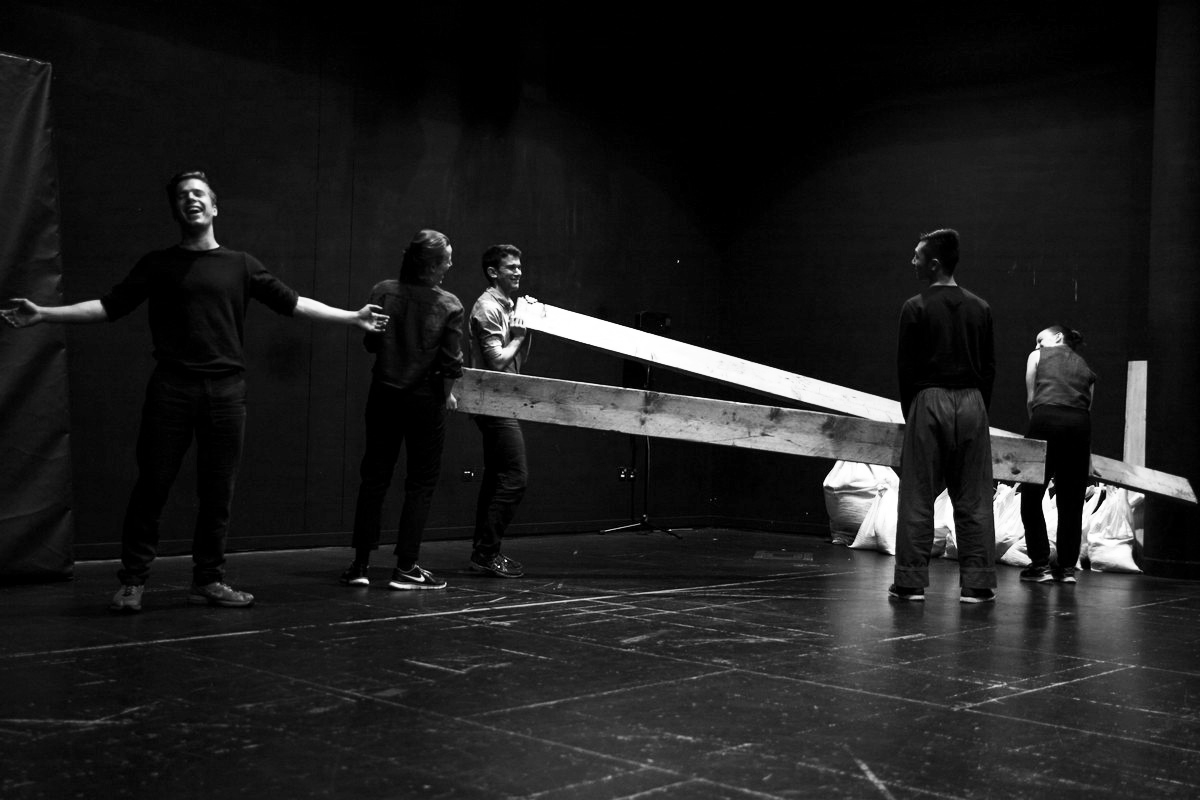
‘Drama Schools Versus University Courses’
Published in The Stage, 31 March 2021
I would like to respond to Lyn Gardner’s piece on what universities offer that drama schools can’t. I teach on one of several conservatoire programmes that complicate the opposition she sees between traditional drama school training and university drama school courses.
Guildhall director Orla O’Loughlin states: “The actor as artist is the direction of travel,” but for my colleagues and I, this is nothing new. Since its leadership under Complicité associate Catherine Alexander, the BA Acting (Collaborative and Devised Theatre) degree at the Royal Central School of Speech and Drama has had the actor as artist at the heart of its ethos.
For more than 10 years, our full-time, vocational training has combined psycho-physical acting technique with ensemble theatremaking and devising.
The faculty includes three active theatremakers, and we have artistic partnerships with Complicité, Inspector Sands, New Diorama, Theatre Peckham and Queen’s Theatre Hornchurch, contributing to their outreach programmes.
It is not only university courses that offer debate about theatre, along with various transferable skills. Good technical training itself involves interrogating and imagining worlds that are not our own. Performing Chekhov involves understanding serfdom and neo-feudalism; teaching Meyerhold means understanding the Russian Revolution and the Constructivist avant-garde; working on American plays means grappling with slavery, Reconstruction, and recurring civil rights movements; exploring Stanislavski and Michael Chekhov means grasping that they were artistically innovative yet politically reactionary.
Any contemporary actor training worth its salt must cultivate resourceful, critical and informed artist-collaborators, who know something of the world and those who came before them, but who also know their own minds and can create in their own voice.
University drama courses don’t have a monopoly on pioneering practice. For us, new devised work about human trafficking, sound-led productions involving live sound-processing with European designers, Shakespeare productions that play with gender identity and polyphonic characterisation, anti-oppressive pedagogy, intimacy training and collaborative classes between actors and designers are all par for the course.
Our graduates go out into the world equipped with access to proven kinds of knowledge as well as the capacity to disrupt it. Inventive drama school programmes can and consistently do inspire the innovative and the groundbreaking.
Sinéad Rushe
Theatre director and Senior Lecturer in Acting and Movement
Royal Central School of Speech and Drama
